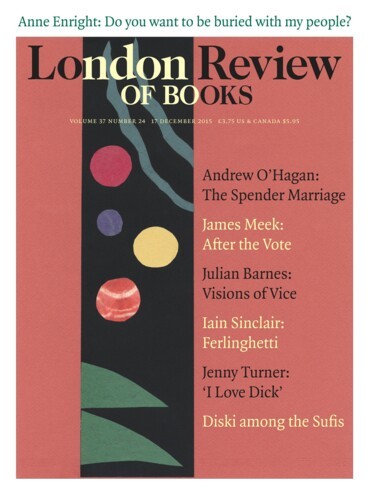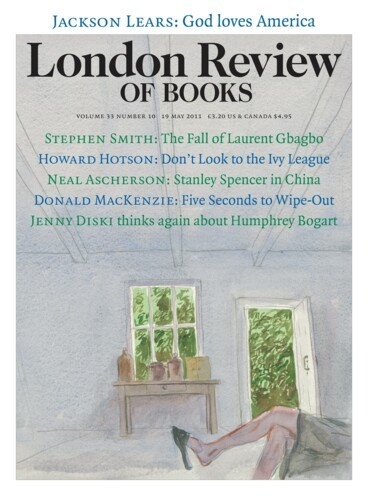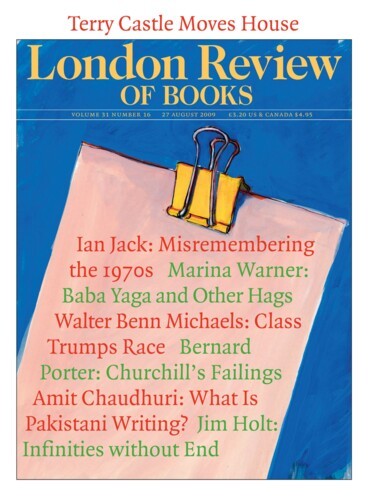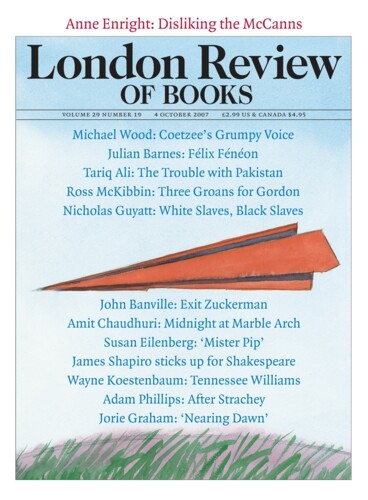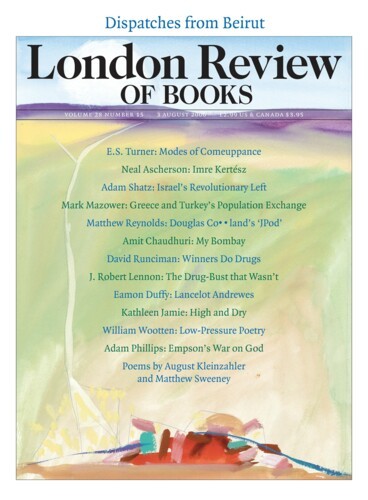Diary: Modi’s Hinduism
Amit Chaudhuri, 17 December 2015
In November I had to cancel the teaching I was doing in Norwich to return to Calcutta to visit my mother, who is elderly and ailing. On the 8th, I didn’t pay much attention to the fact that this was the morning on which the results of the Bihar assembly elections were being declared. Maybe I took for granted that the BJP – which had made it clear that these elections were to be...
